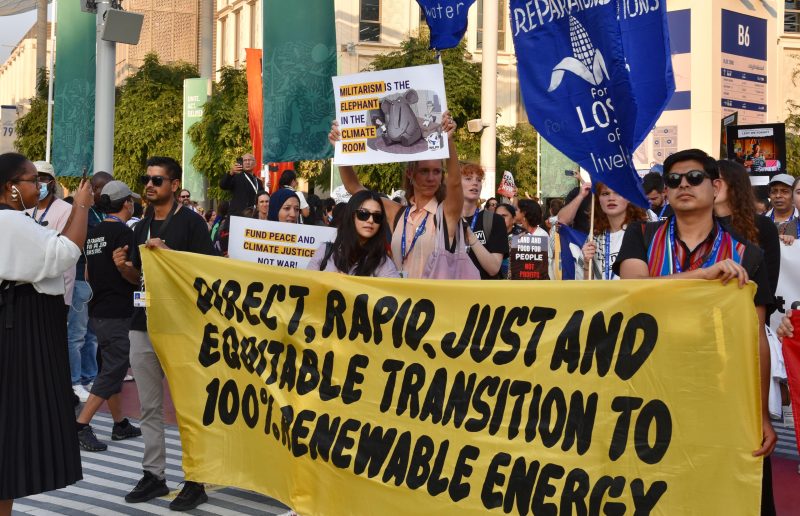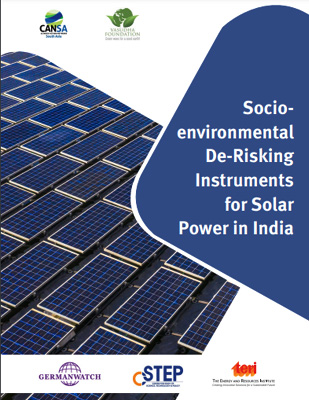Why South Asia Needs Inclusive Conversations for a Just Transition
By Dr. Sanjay Vashist
South Asia’s vulnerability to climate change was tragically illustrated by the catastrophic flash floods that struck Uttarkashi, Uttarakhand, on August 5, when a sudden and powerful surge of water and debris tore through the village of Dharali and surrounding areas, leaving at least four people dead and over 100 missing. Homes, shops, hotels, and critical infrastructure were swept away in minutes, and the bustling market was left in ruins.
Budget 2025: India’s Roadmap to Climate-Resilient Growth and Global South Leadership
By Nakul Sharma
The World Economic Outlook projects global growth at 3.3 percent, butbut the IMF -projection of India’s expected GDP growth at 6.,5 percent allows it to maintain the status of fastest growing major economy in FY 25-26 as well. The economic growth figures might look attractive and mislead you in to believing that the Indian economy is fine, but the risks are almost certain. One such risk is the economic cost of “climate change.” The 2022-23 RBI report suggests that up to 4.5 percent of India’s GDP could be at risk by 2030 due to extreme heat.
Socio Environmental De-Risking Instruments for Solar Power in India
Download Here India has an ambitious target of achieving 100 GW of solar-based electricity generation capacity by 2022. However, technical, financial, and socio-environmental risks hinder large-scale investment in solar energy in India. In order to reduce or eliminate the actual risks and risk perception of investors, India needs investment de-risking of its solar energy sector. […]
Gender and Child Inclusion in Policies on Climate Change in South Asia
Download Here Climate change is a natural process, but its exacerbation in recent decades due to anthropogenic activities has created severe problems and challenges. Though children and women contribute little to the causes of climate change, they are the ones hardest hit by it. Poor governance with respect to climate risks and lack of policies […]
Gender and Child Inclusion in Policies on climate Change in Southeast Asia
Download Here This report provides a situational analysis on climate action relating to women and children in Southeast Asia. Existing Association of Southeast Asian Nations (ASEAN) climate policies, on a regional level, are generally gender-responsive, framed within a broader framework of sustainable development, with a positive trend towards gender-transformative action. While Nationally Determined Contributions amongst […]
HCN Briefing: A Just Energy Transition for a healthy fossil fuel free world
Download Here A just energy transition is increasingly viewed as important in confronting the energy and climate crises. The G7, along with middle-income partners including India, Indonesia, and South Africa, is looking to establish Just Energy Transition Partnerships (JETPs) to support coal phase-out1. Just energy transition is also a core demand among those calling for […]
Policy Brief – Enhance Climate Ambition and Global Stocktake with Local Sustainable Energy
Download Here A large number of local, sustainable energy solutions are important climate solutions. Including them fully in climate plans will make it easier to reach higher ambitions in climate mitigation and adaptation. It is also essential to include the local solutions when assessing progress in climate action with the Global Stocktake (GST), in order […]
An Equitable Phase Out of Fossil Fuels: A civil society equity review
By Divyanshi Yadav
The past 3 decades since the UNFCCC negotiations began, we have not tried to mitigate GHG emissions despite clear warnings. As a result the climate crisis is hitting the most vulnerable people in the Global South first and hardest…
Medical Experts come together to call for stringent measures to curb fossil fuel use for cleaner air and a means to mitigate climate change
By Divyanshi Yadav
On 7th September, the International Day of Clean Air for Blue Skies, an important webinar titled ‘Fossil Fuels, Air Pollution, Climate Change & Health: Resolving South Asia’s Air Pollution & Climate Crisis…
CARE-Gender Quality and NDCs
Download Here The Paris Agreement on Climate Change requires Parties to submit new or updated national climate action plans, the so-called Nationally Determined Contributions (NDCs) every five years. Five years after its adoption, many countries are now in the process of revising or updating their NDCs which should have been delivered in 2020. While climate […]













